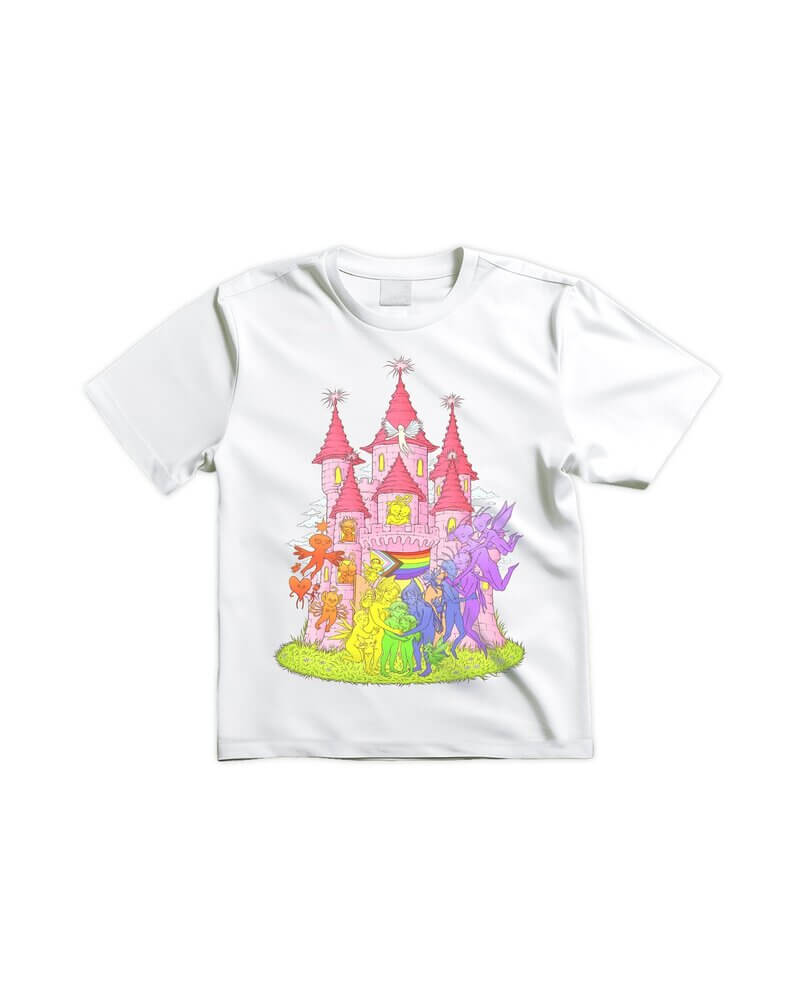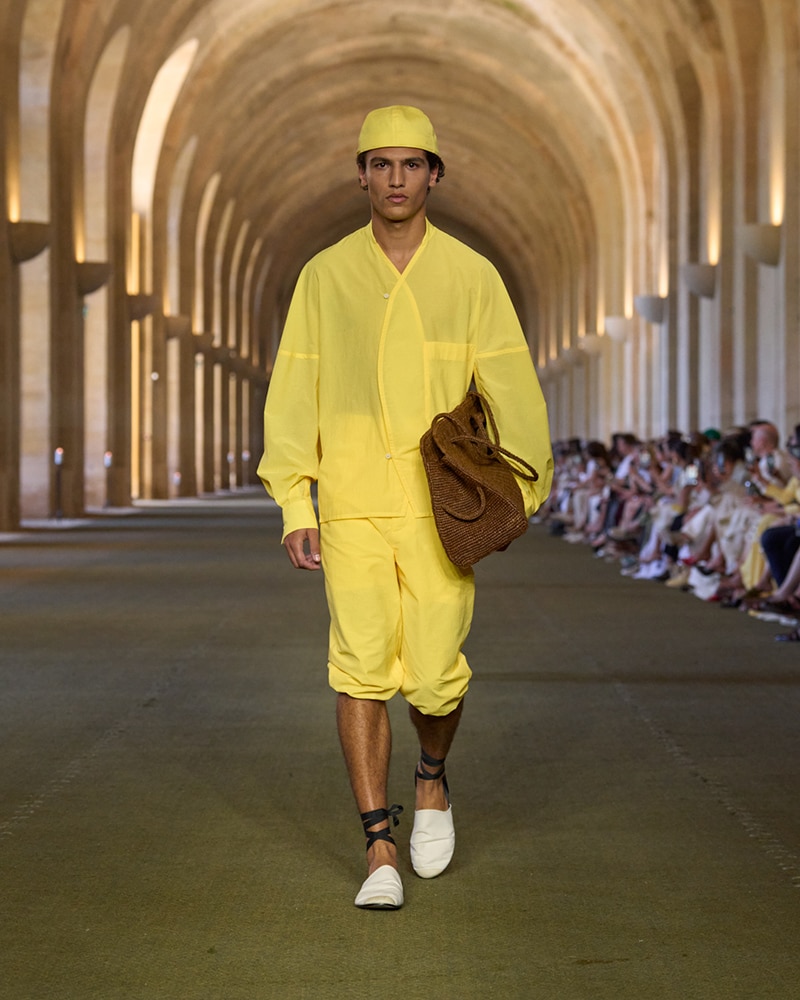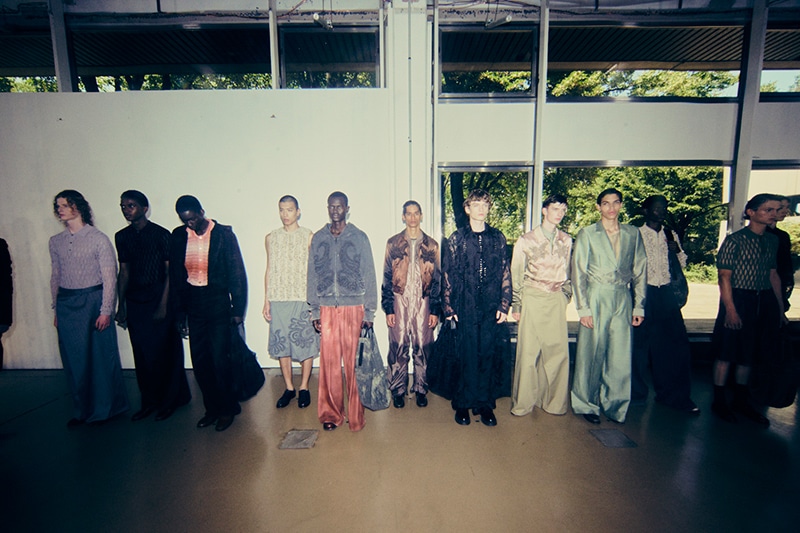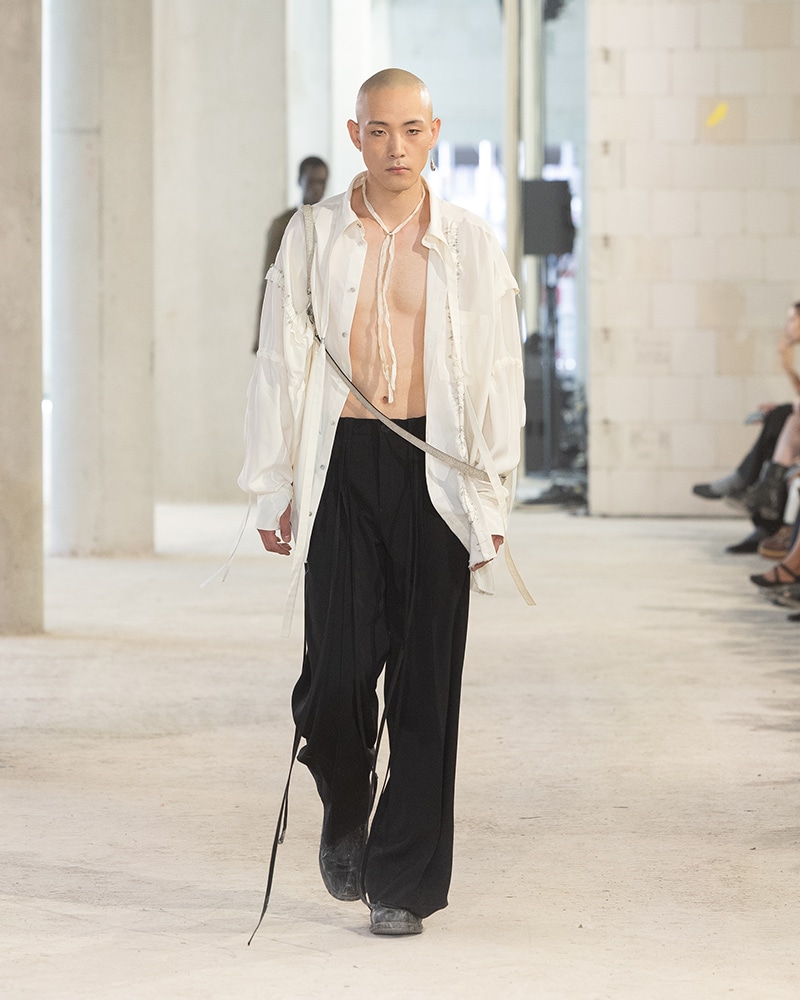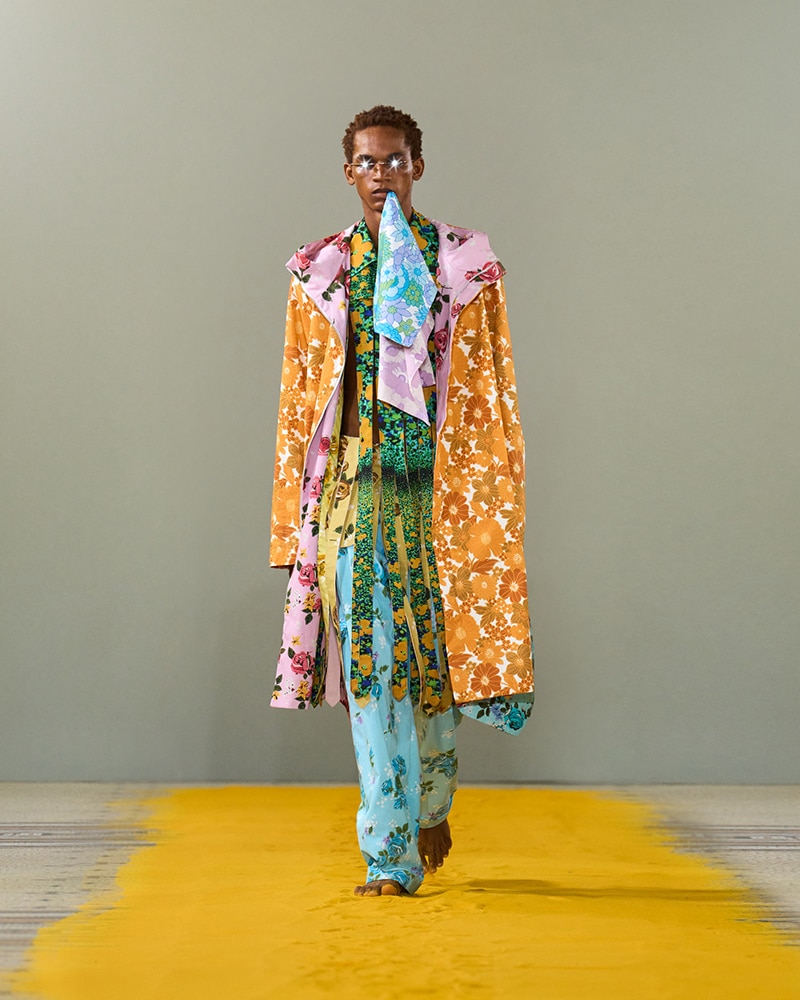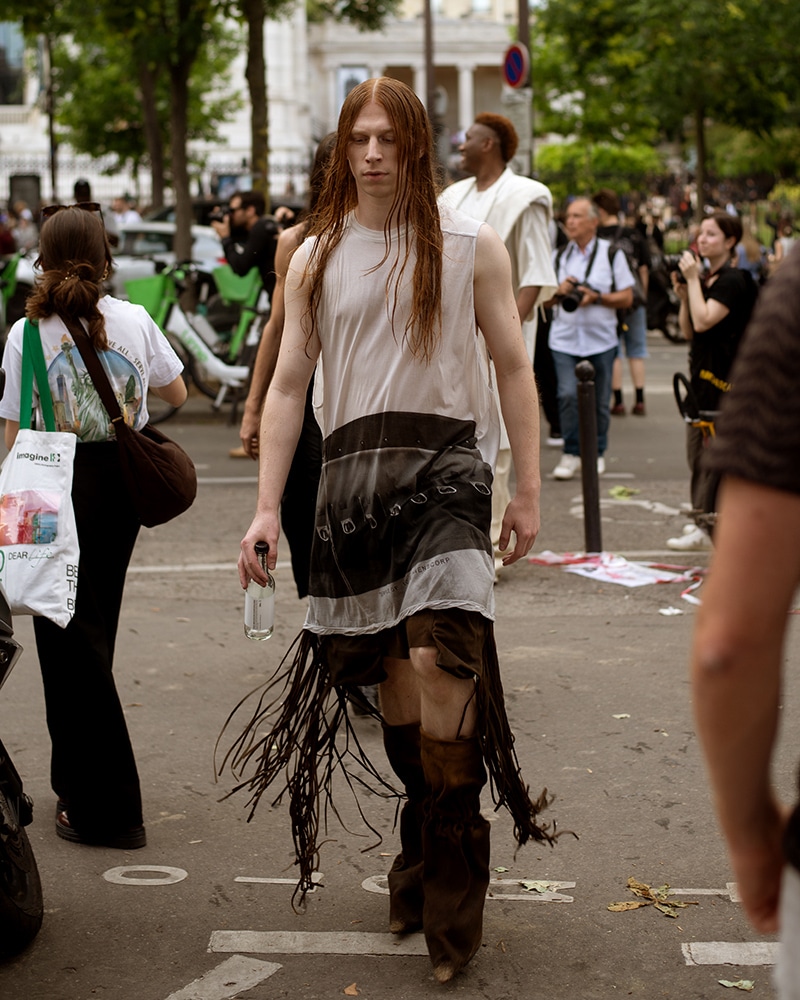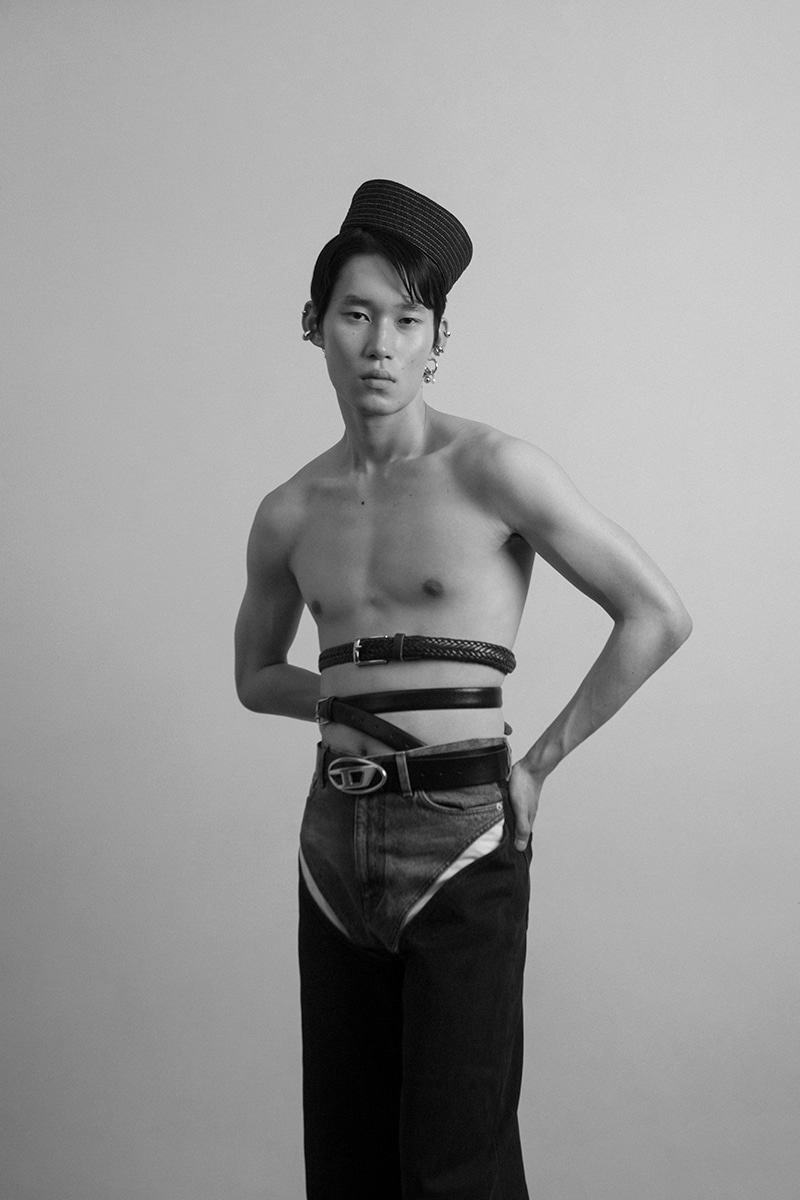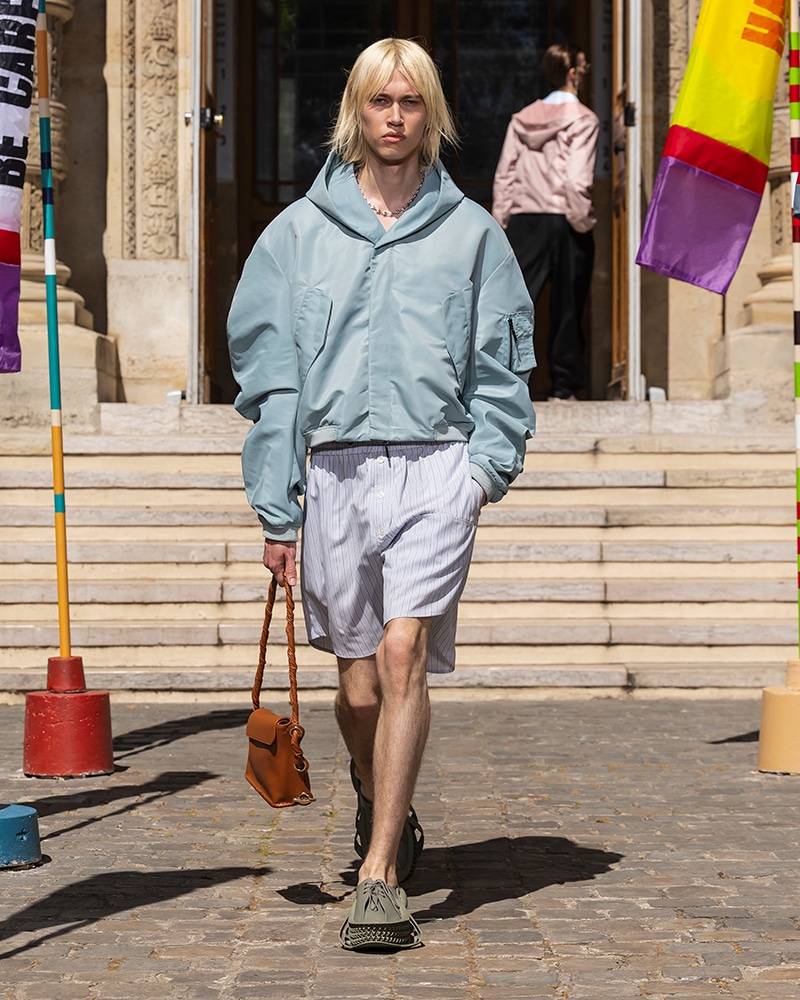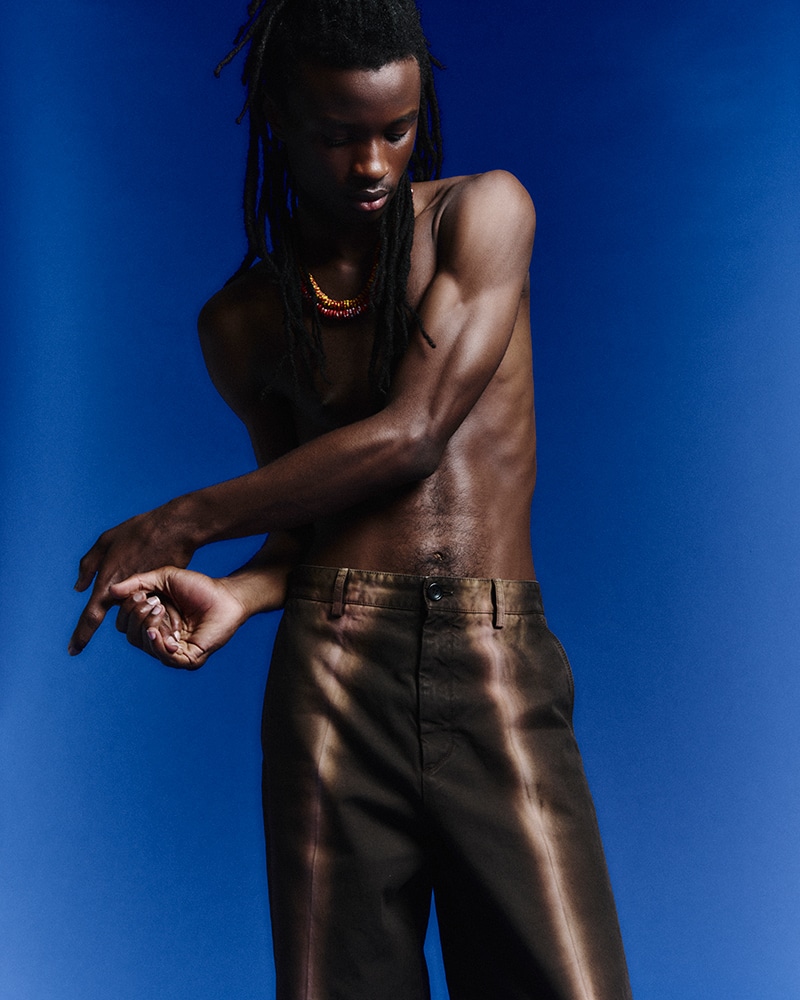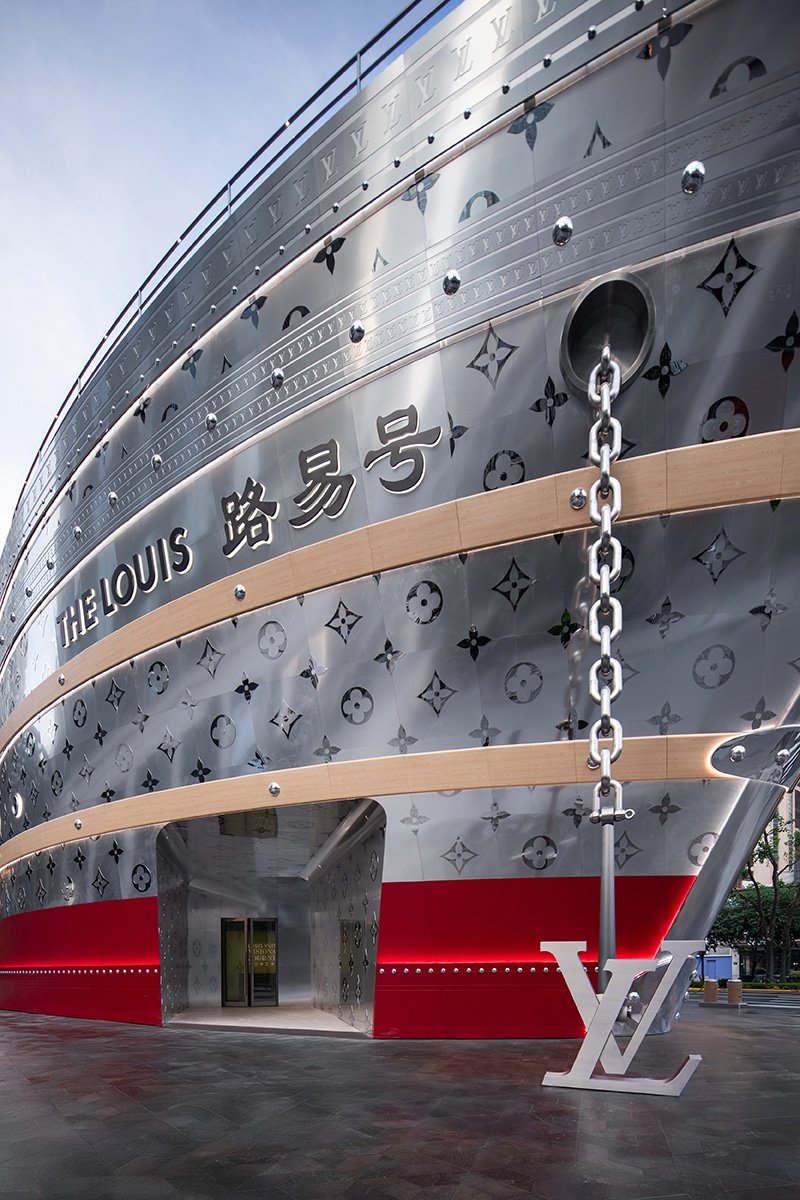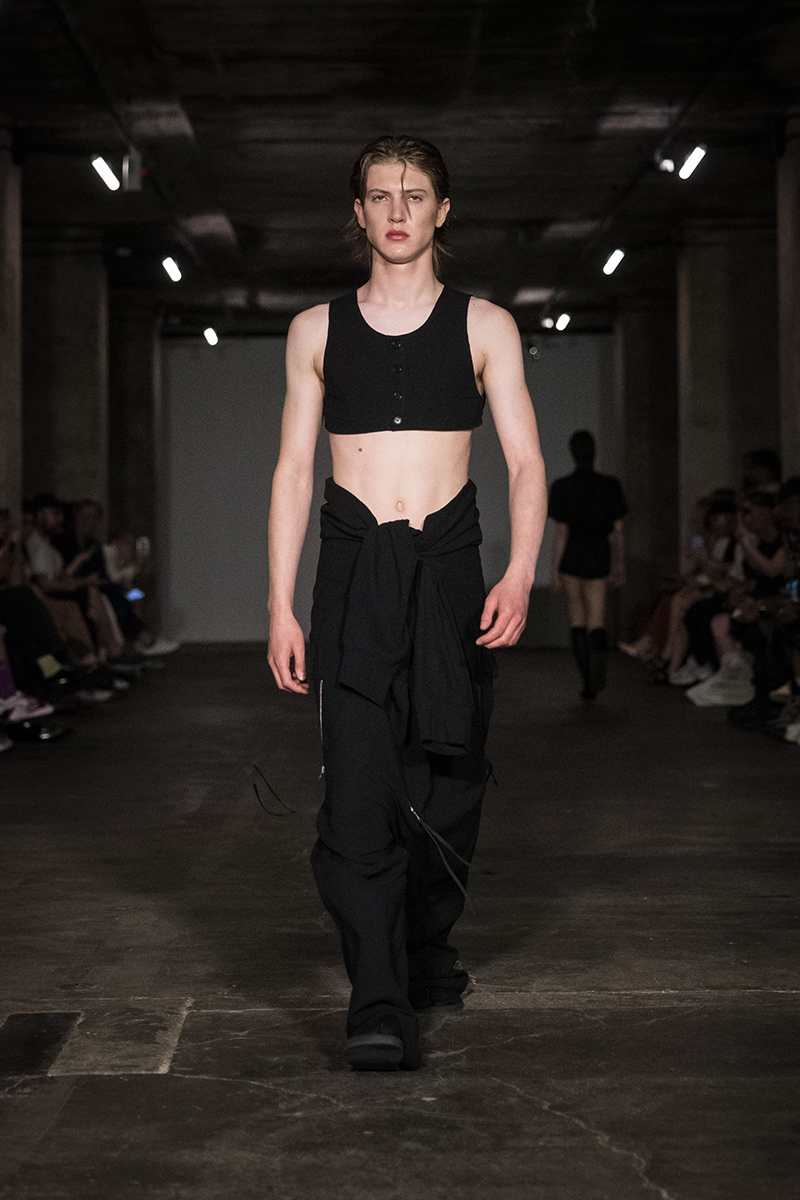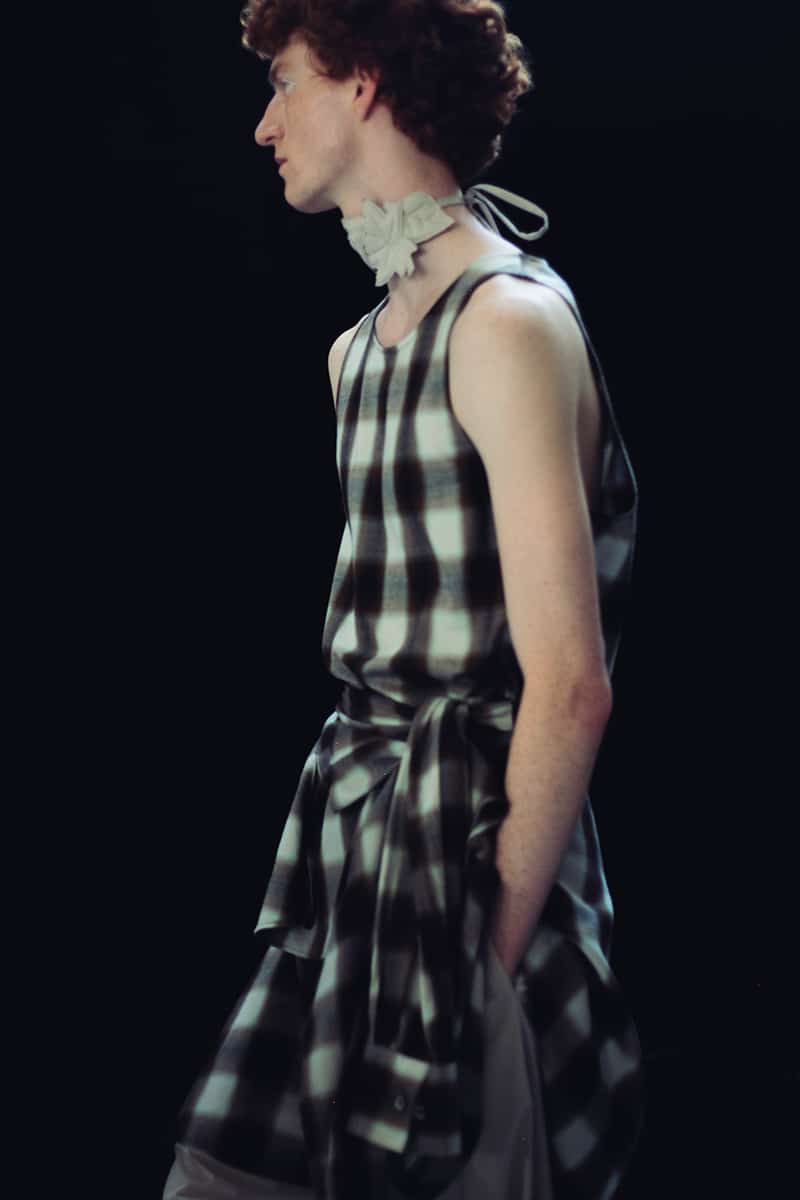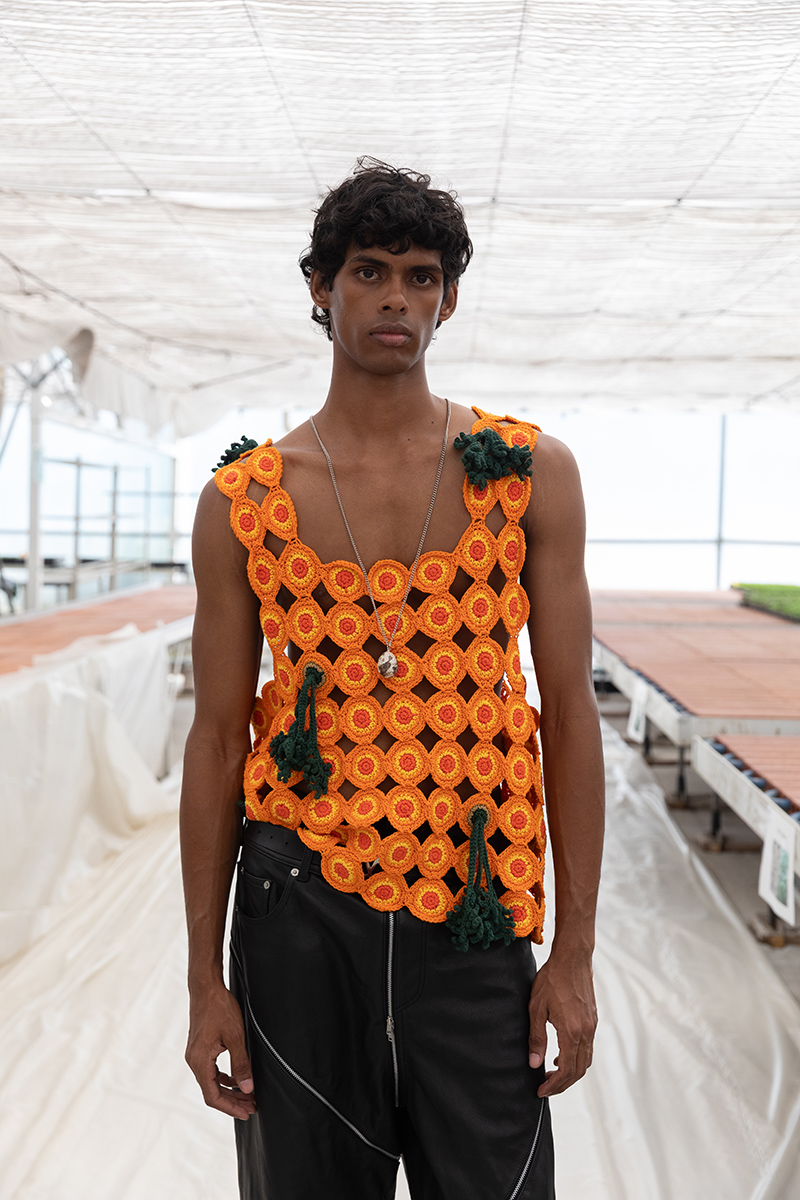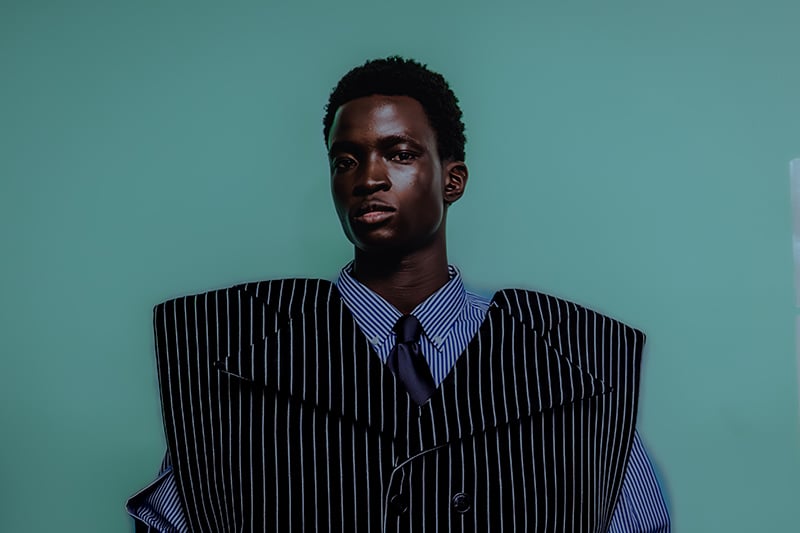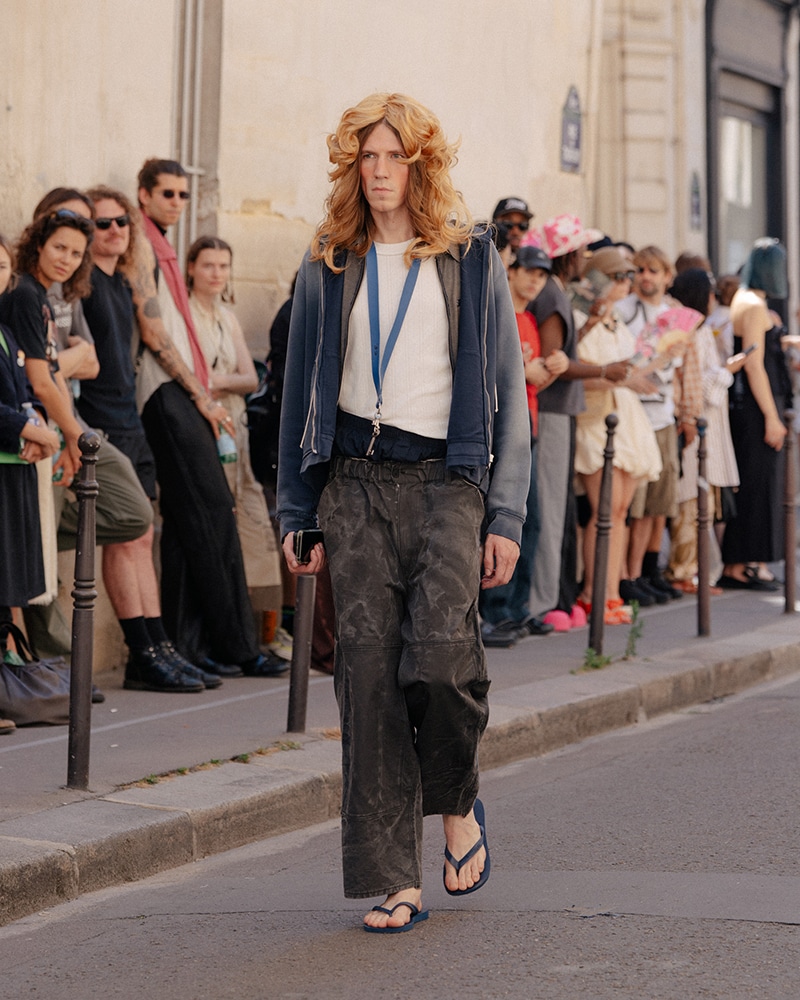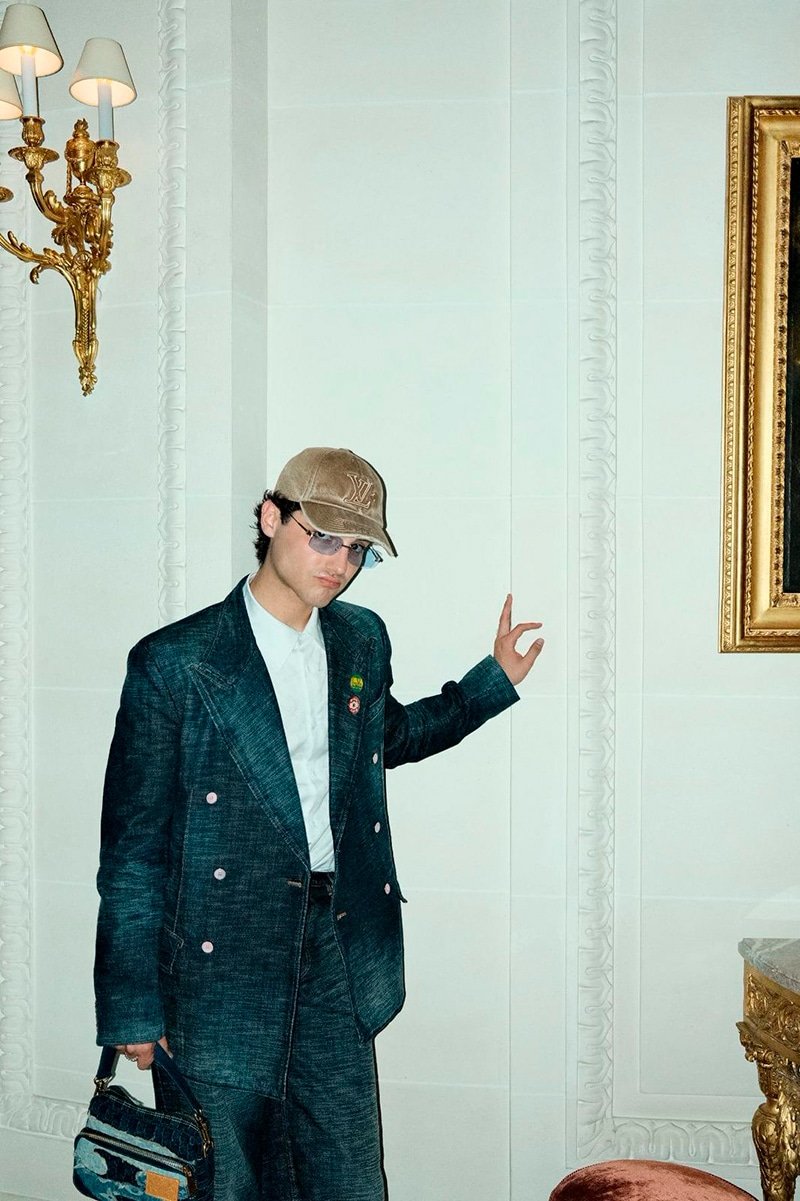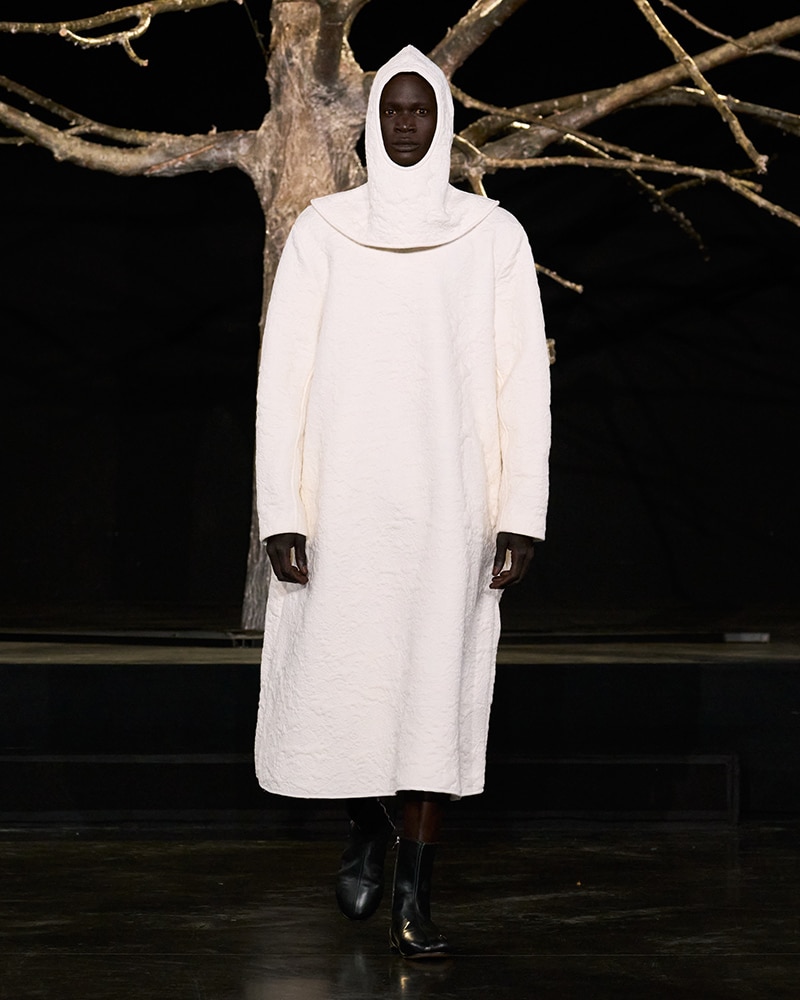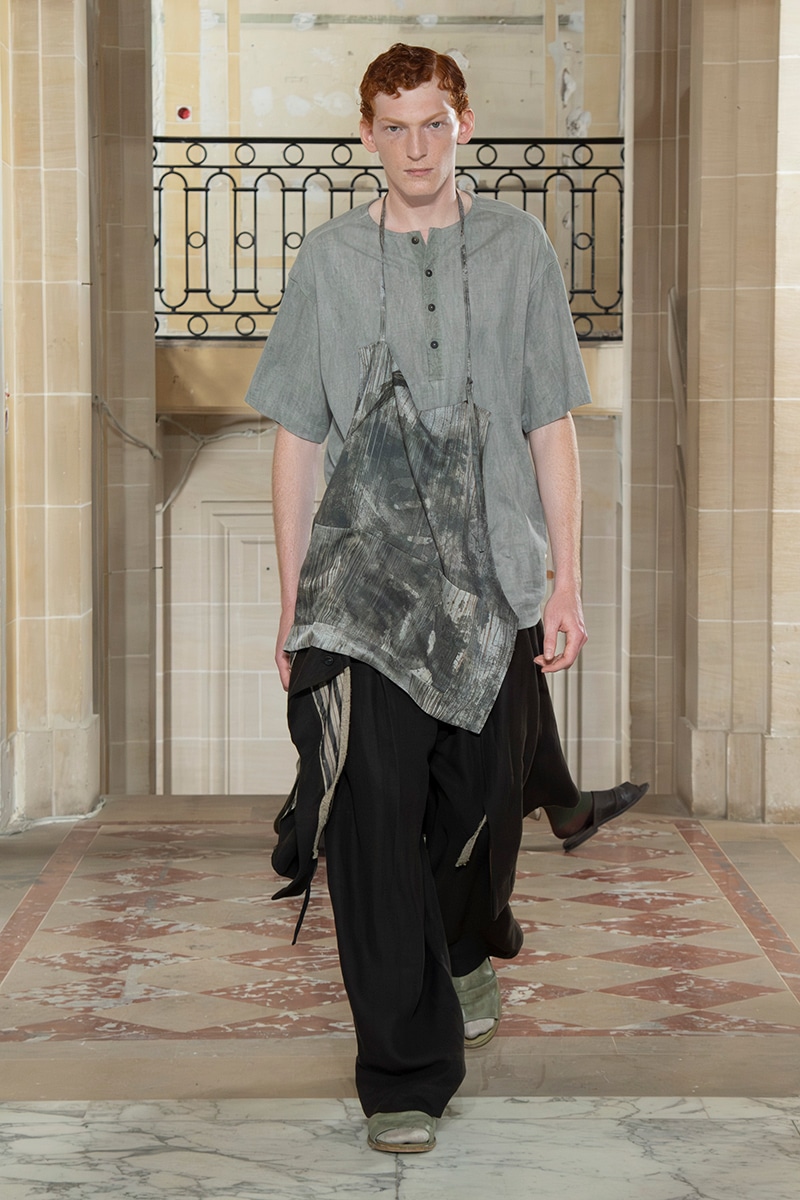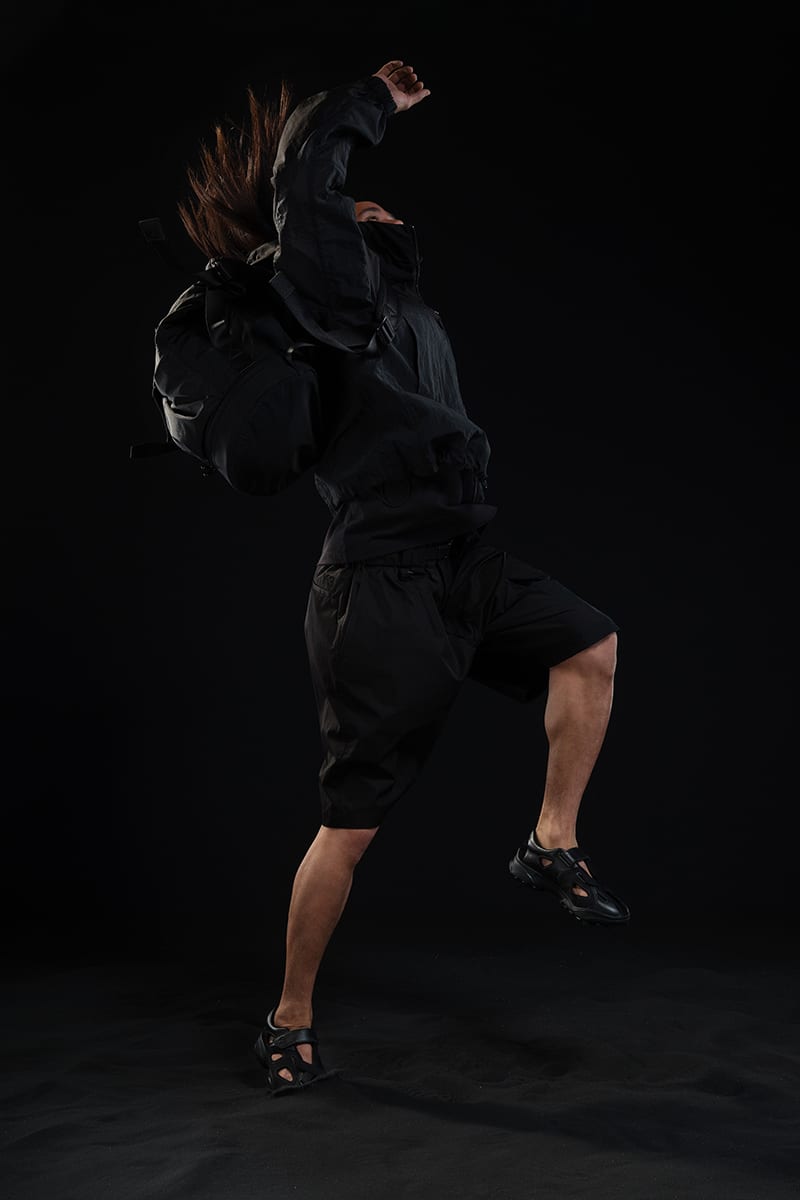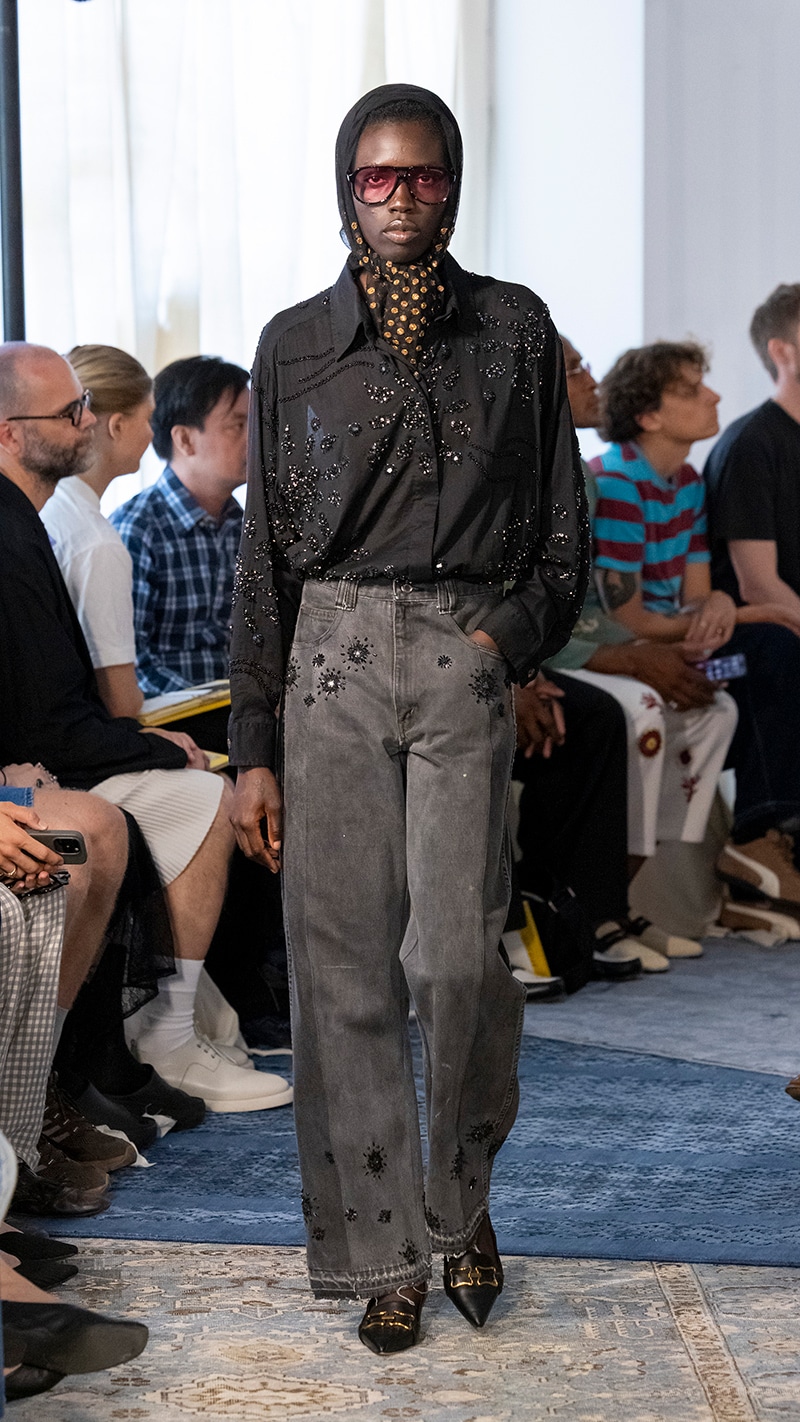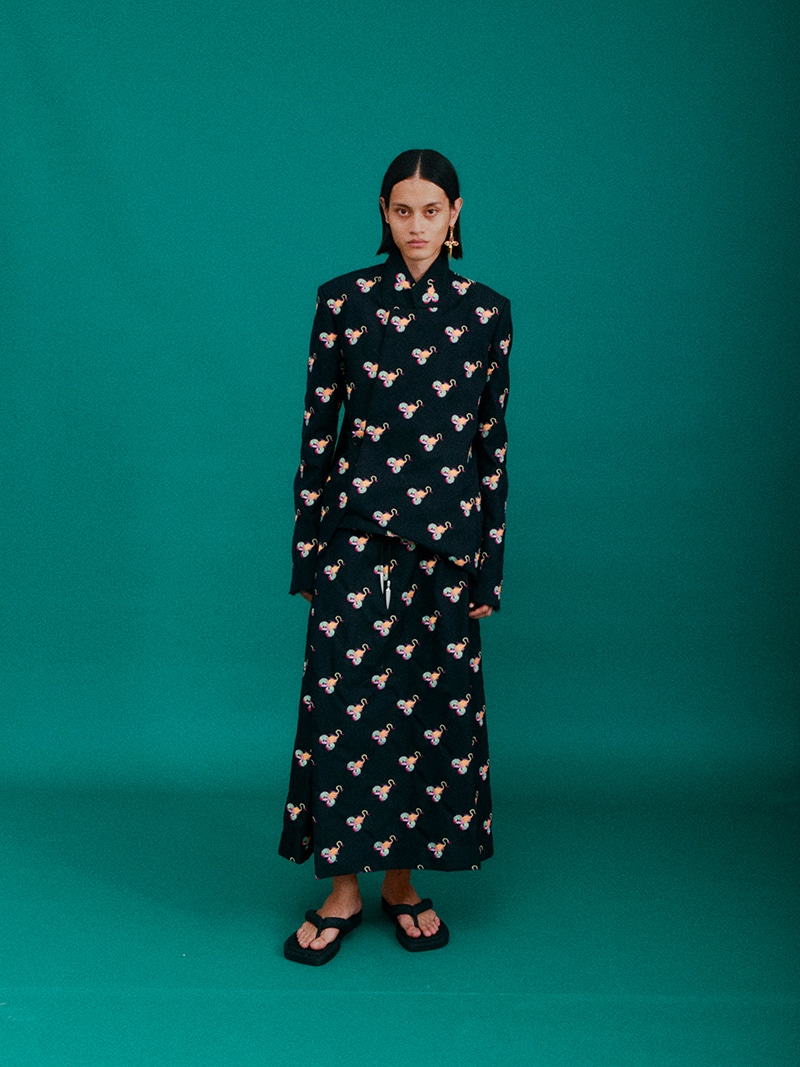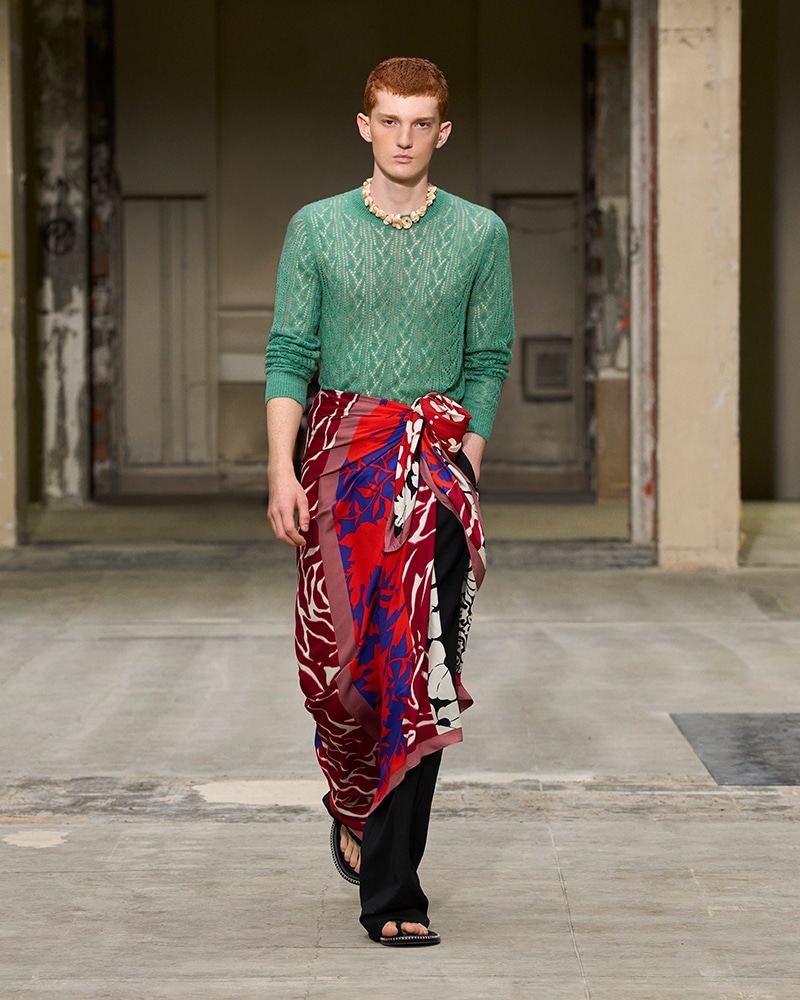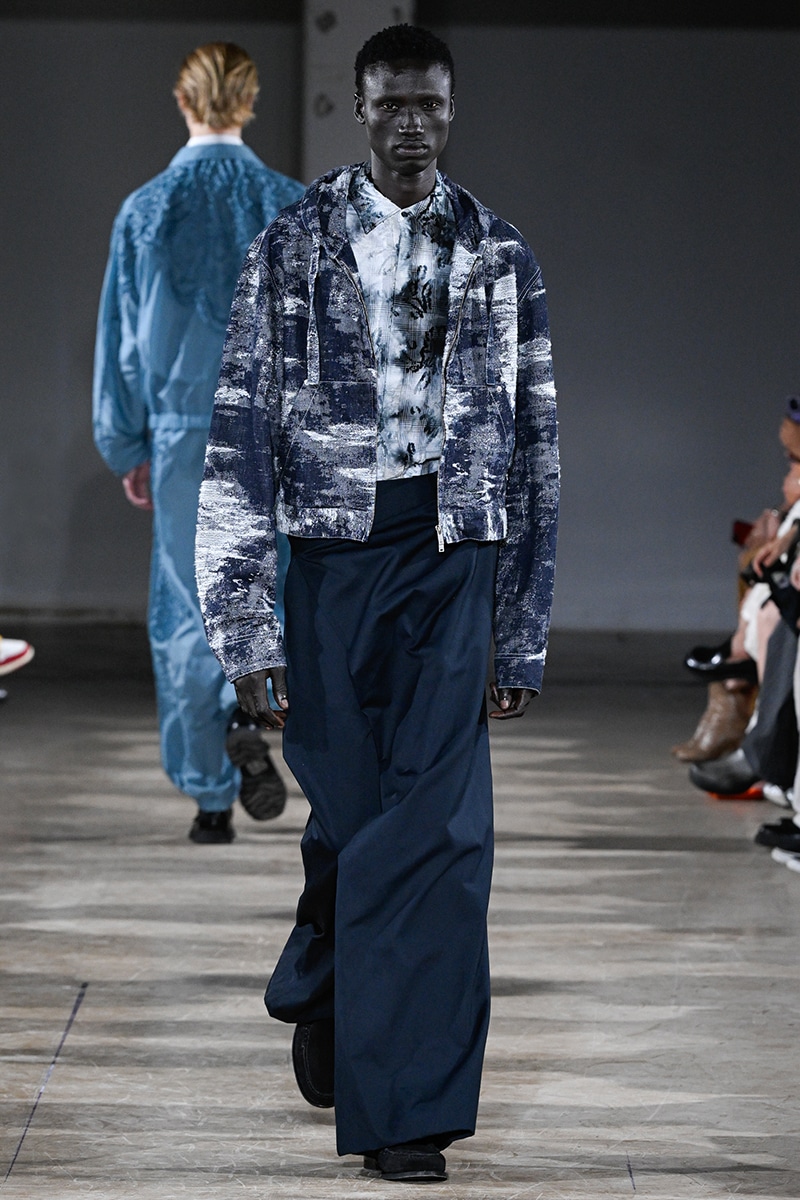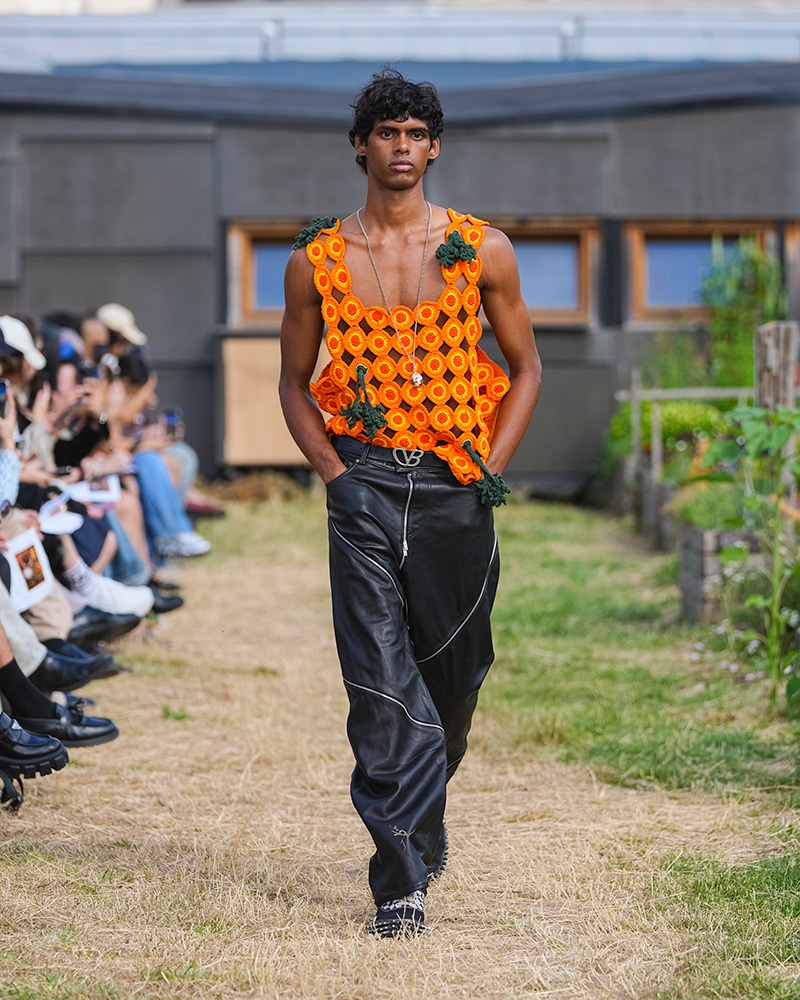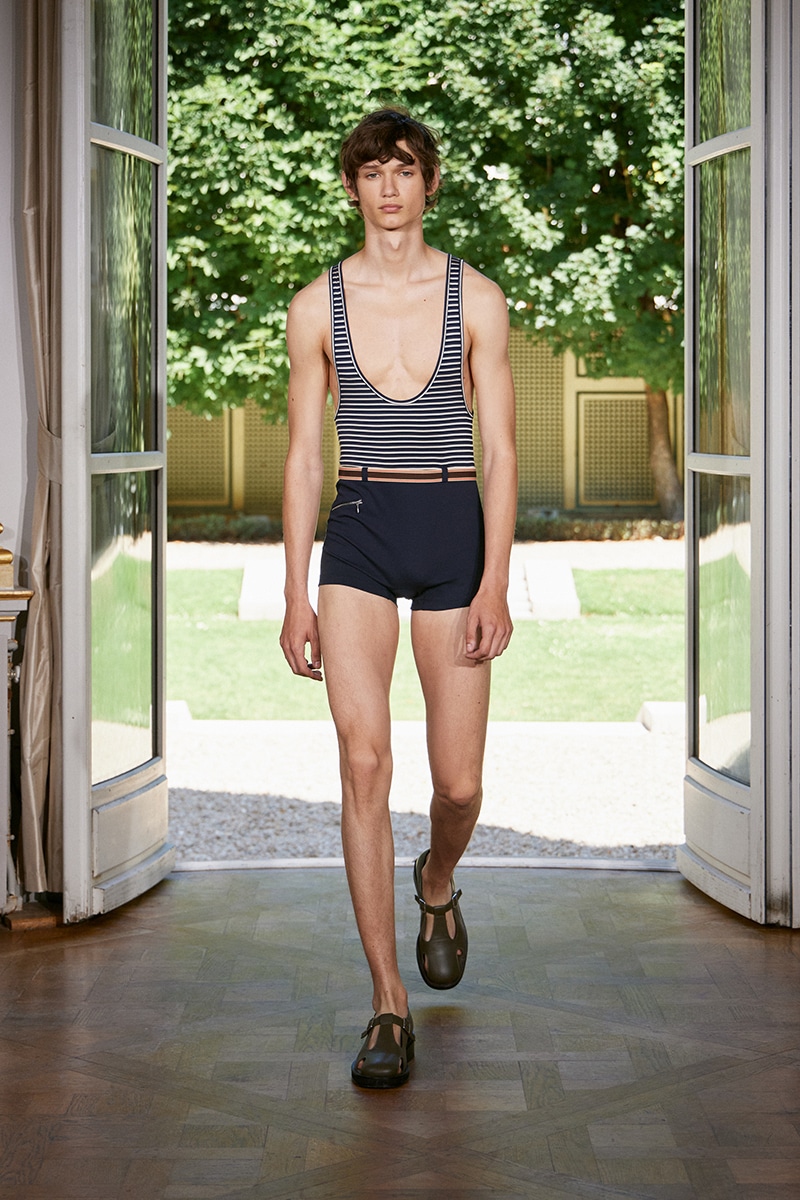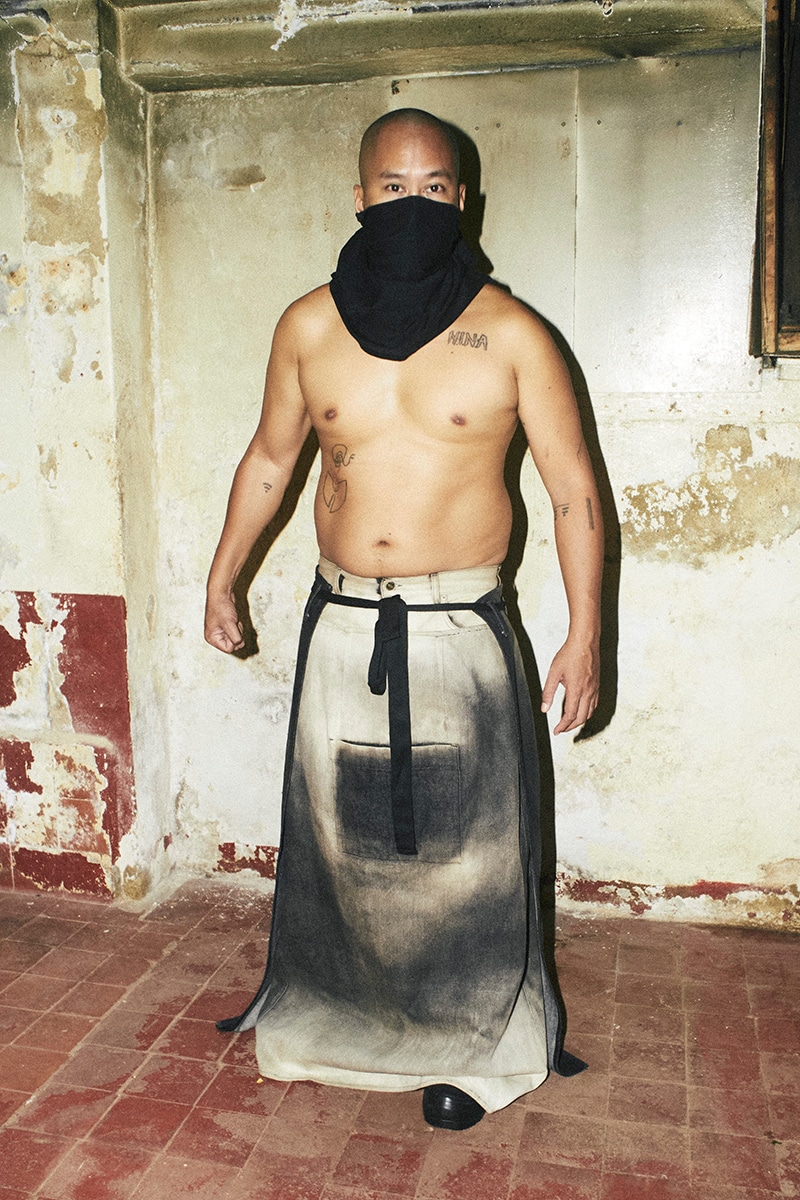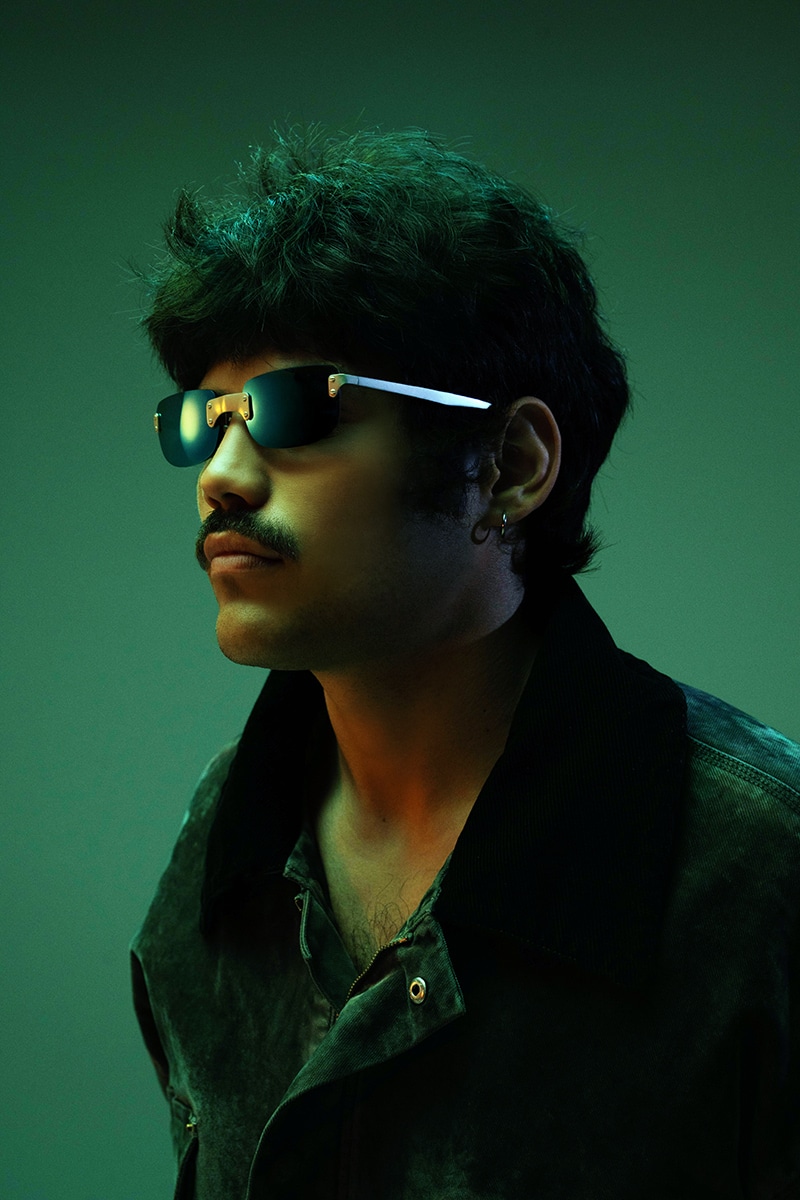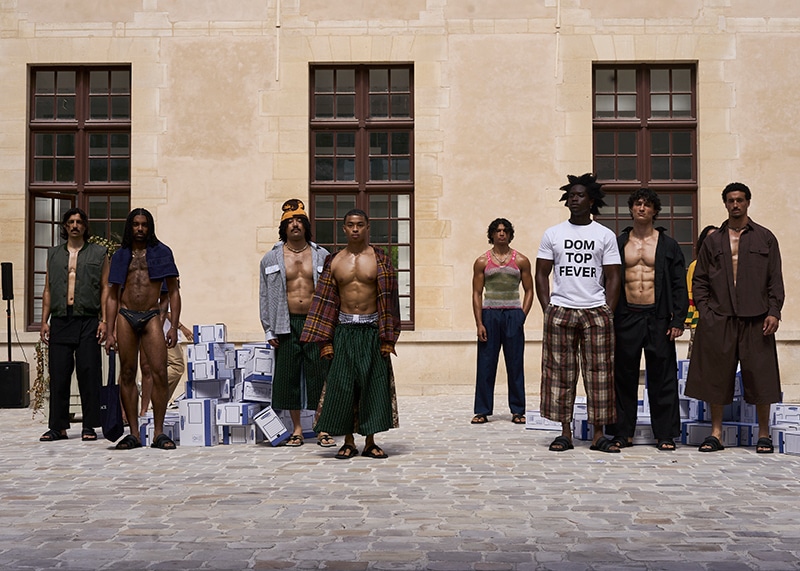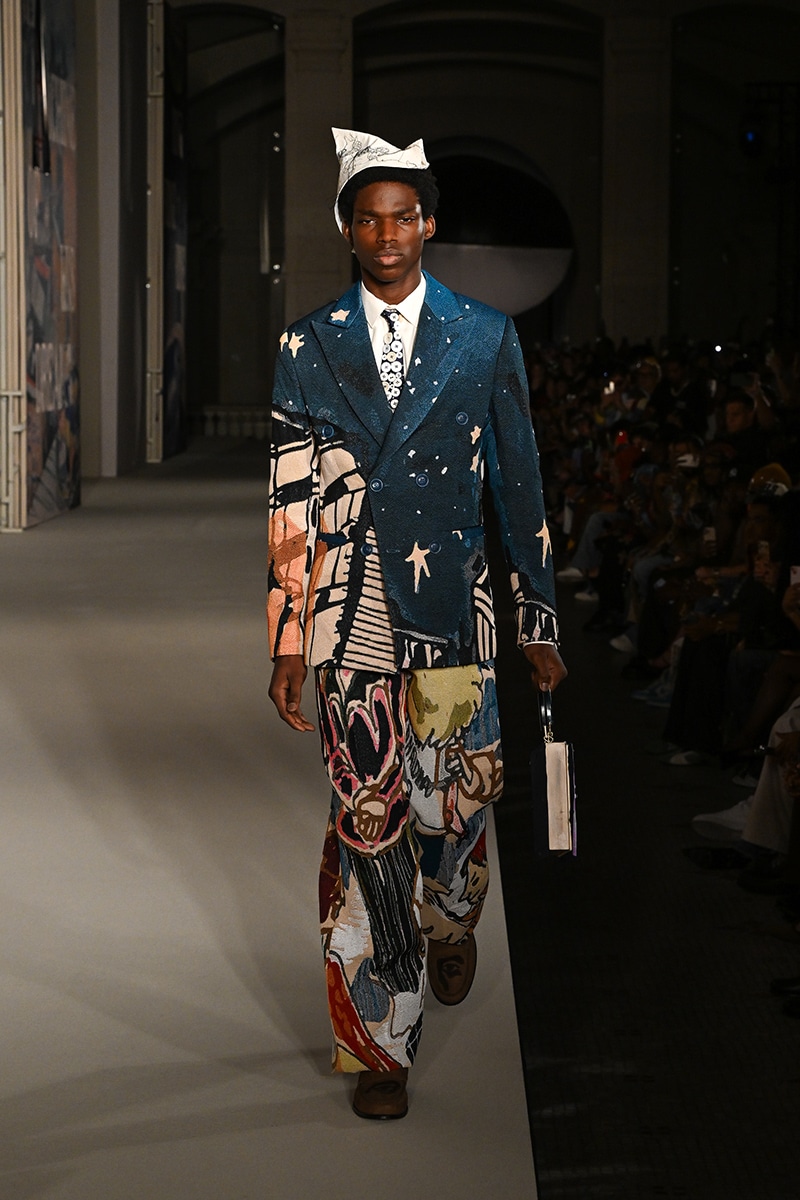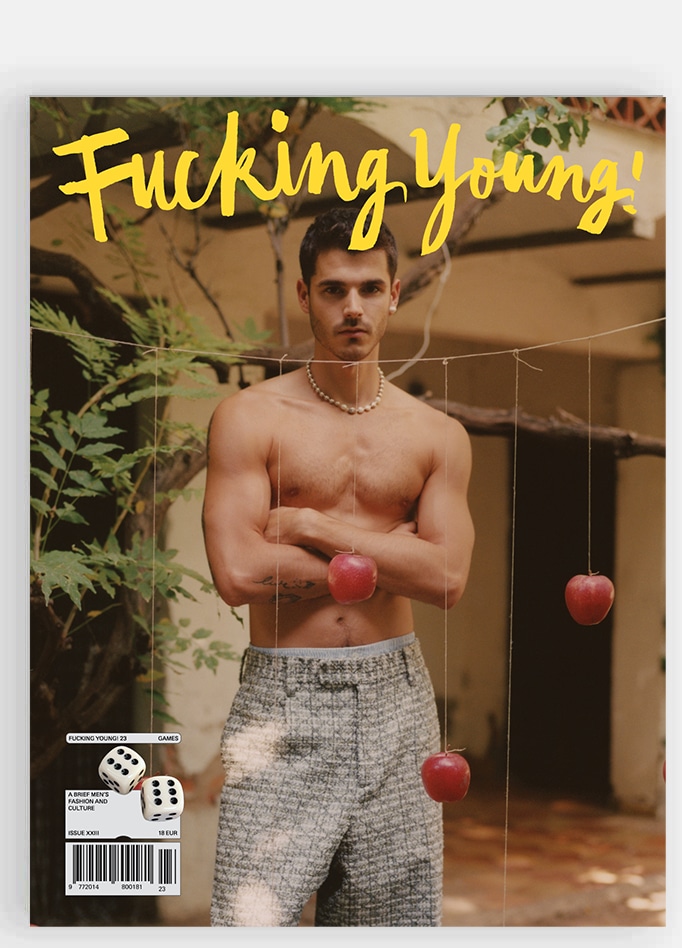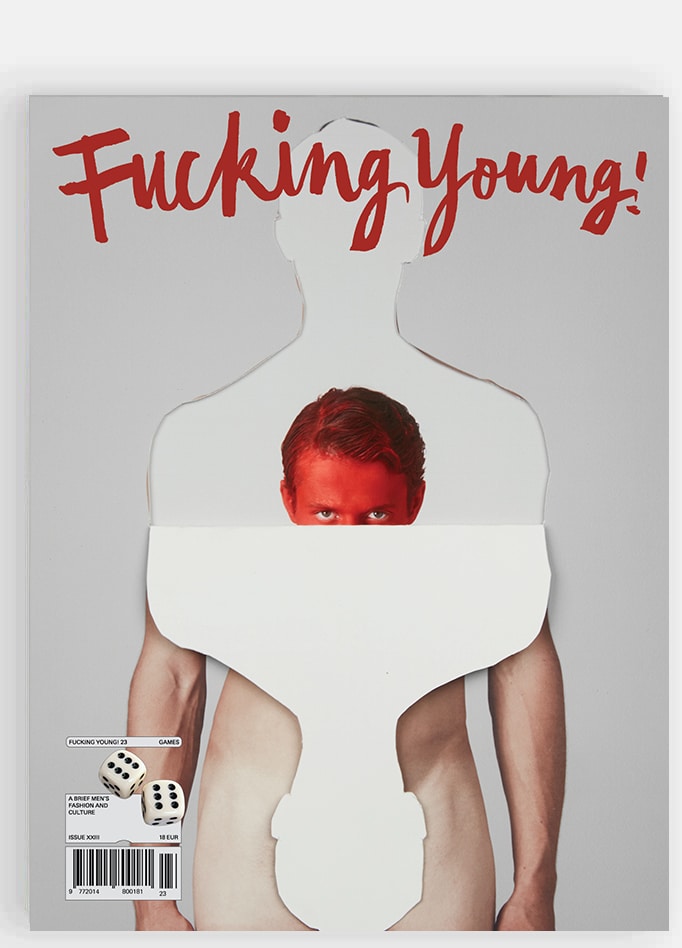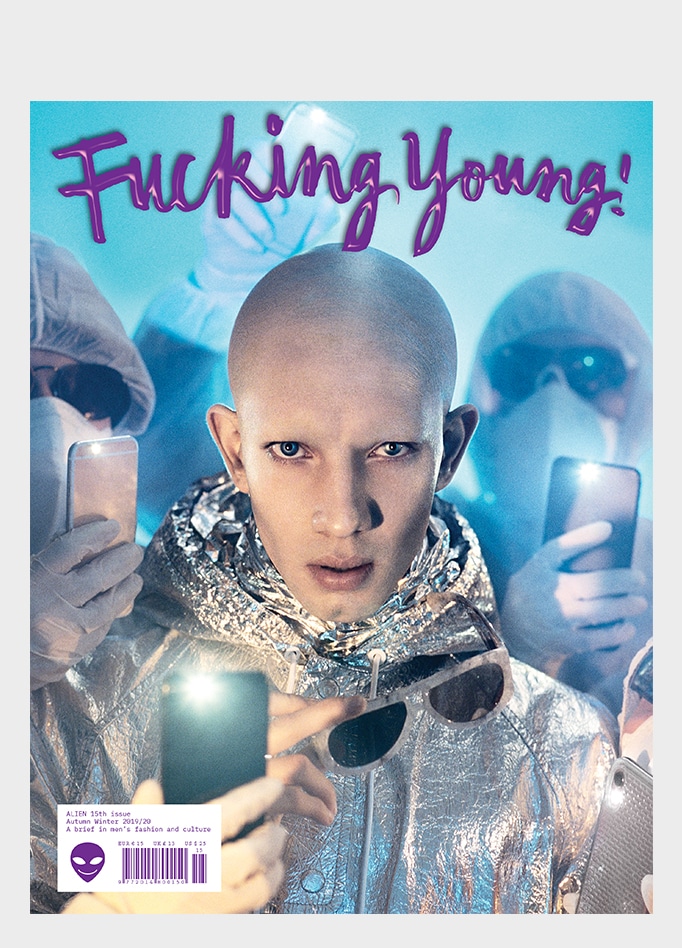David Apakidze is a Tbilisi-based queer activist, fashion creative and founder of queer art platform Project Fungus. Their enchanting input into Georgian queer art and its community lets queer people have some safe space to express their visions, concerns and real identity without fading it away, but purposely society puts a blind eye to it, as David themselves characterises this as invisible visibility, and this is how they describe life of being invisibly visible to the Georgian public.
“We are a hidden community (tribe), unlike many minorities, our identification is often difficult because of the clichés, that lie about us, as we represent and carry in ourselves so much more than it.
There are a lot of us, but we are invisible, many people in Georgia refuse to believe in our existence at all. During the daytime, we look at each other in the streets to meet at night, to dance with each other, to kiss each other, to touch each other. This is our story – hideout, darkness and passion. We hide our feelings, our manners, our friends, our heads. But our night must end, because someone’s day has started.
On May 17, 2013, our community tried to leave this dark cave in order to get some bright rays of the sun. The way out of the cave turned out to be difficult, where the oppressive system has roughly met cave hostages, putting them into crude shadows of moulded society. But it seemed like these thousands of zombified by orthodox religion people were the actual hostages of the same darkness, frightened by these simple shadows, that we were. After such a hectic meeting the warriors of our tribe returned to primary basements and caves, but seeing the light behind the shadows gave hope, and the cave began to disband. Queer activism has moved to underground and continued to fight the system from there. Then I got into my queer family, the 2013th tragedy was just remembered from TV news, so I had no fear of expressing my identity, I couldn’t understand why people slightly older than me were so restrained, why they wore masks, why they gently cuddle each other in the dark away from others’ eyes, and why they love this black colour so much.
I don’t like this characterization because it’s also a cliché, but my generation has grown much more colourful, deprived from gender norms, sexually free, and less traumatized by the oppressed system. Georgia was my favourite country (and still is), the real queer capital of this country for me was exactly Tbilisi, because the LGBTQ+ community of this country was growing. When in the Western media I always met articles saying, that Georgia was one of the most homophobic countries in Europe, I was angry because I was the freest person on the earth, I expressed my love where I wanted, I looked the way I wanted to, I danced as my heart dictated, and everyone was like that, who lived next to me in this country…
Tbilisi Pride was approaching, and my friends couldn’t spot talking about TV footage of 2013, and I couldn’t get out of my head fading faces of my older friends every May, how queer people evaporated from the streets every May 17. And I realized, that the shadows of the cave were brought out again, because the main monster, which unfortunately is not just a shadow, and it has been waging in our country for a long time. I saw its shadows for the first time at the protests of 2018, known as the Rave Revolution. We were the youngsters, who believed in its own strength, but the oligarchic government, along with the Russian forces, has sent to us thousands of wild, evil men who were actually people like us, but frightened. Calling us hipsters, these people with the darkened out minds, wanted to let out their anger and aggression for the failing system on us, but again as in 2013 we couldn’t speak up for ourselves, so we looked each other in the eyes and dissolved in the different parts of the city.
Again Pride was on the way, I was scrolling social media, and everything I could see there were videos of startups and celebrities, who briefly fitted in 6 colours and beautiful words in support of our community. And outside, the streets were full of angry people, who added me to these 6 colours. The shadows appeared again, I was afraid of people on the street, and they were afraid of me. They were terrified by the policy they assumed I carried, as a visibly noticeable queer person. By that time I had long beautiful hair, for me, it was just long curly hair, without any identity embedded into it. Suddenly my hair became so politicised and loud. In public transport, women would harass me, twitching my curly hair, and men on the street were cursing and insulting me. One day my neighbours stopped me, flooding me with questions about how I looked, they started arguing with me and my neighbour promised me that if I won’t cut my hair, or change my style, I would have my throat cut. I ironically responded to their question, but in a few days I had my hair cut, I put the colourful clothes deep in the closet, and moved to my friend. When I was shaving my hair I had my thoughts around many things: that I no longer can call this place my homeland; how I was convinced that I was a minority really; that Georgia is one of the most homophobic countries in Europe and that Georgia is not Europe at all. And it was the day when I decided to leave the country and become a refugee in Belgium, abandoning everything I loved. My dreams and views on life have found their end, on this exact day.
The shadows once again hid the sun’s rays, and I found myself in a cave again, remembering the day of Pride as a dream. I thought I was on heavy drugs, because of the reality of that day, that I observed from gadgets. Instead, I remember very well the numerous rallies that took place the next day, and despite my terrible emotional state, I still stood outside because I wanted to protest what happened the day before, protest homophobia and systemic oppression. I met thousands of people in front of the Parliament and gave them hope, but when I started listening to the speakers, tears came to my eyes. People who came out on stage talked about everything except the LGBTQ community. I spent a month in fear, in tears, as the policy of visibility, sacrificed not only mine, but many other people’s mental and physical health. And coming on the stage, not having safe space we quietly whispered… sexual minority. During these demonstrations, which were supposed to be a protest against the oppression of the queer people, I felt the most invisible at the rally, where I came to protect my community.
Pride is over, the city has calmed down, the poisoned people have calmed down and I have decided to stay in Georgia. I can’t walk in the streets as freely as I used to, but I believe we’re coming out of the cave. But I don’t believe, that any minority, any community can alone overcome the oppressive system. Western visibility policies do not work in our country, many people in our country are invisible, many communities are downtrodden and we are always afraid of each other, they try to convince us that we are enemies of each other. There is no need to quote Plato to understand, that unity is needed to escape from darkness, without pinpointing differences, we need to find something in common.
Unseeable are not just queers, so for me, there is no story of my coming out, because I will stay in the darkness and I won’t be able to go out until the others are oppressed, I will be invisible until the others are invisible.”






